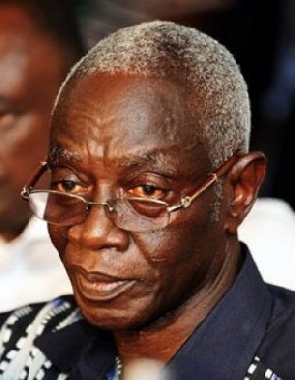For the ease technology provides in doing things for results in real time, society wants to apply it in all aspects of life.
Technology applied in various undertakings helps to surmount related challenges.
Thus, in Ghana, the Electoral Commission (EC), the country’s electoral administrator, has charted a path of using technology for accurate voter registration; verification; tabulation of votes at the various designated centres; and sending results to the EC head office in real time.
Much as technology can be indispensable in the country’s electoral processes, a former Chairman of the EC, Dr. Kwadwo Afari-Gyan, has advised election administrators to make haste slowly in the introduction of new technology into election processes.
Describing the technologies for voter registration and verification; tabulation of votes and sending the figures to the EC head office as the core ones, he said the electoral administrators must first consolidate gains from the technologies already in use before deploying new ones.
He says new technologies should be ones well-suited to the needs and demography in order to avoid bigger challenges.
No doubt, technology has shaped the electoral process in the country in various ways.
For instance, in their in study titled ‘Biometric Election Technology, Voter Experience And Turnout In Ghana’ published in the 2019 edition of the Journal African Elections, Samuel Adams, a professor, and William Asante, a PhD candidate then, state that the biometric system for voter registration and verification (BVRV) introduced for the 2012 and 2016 elections influenced the turnout for both the educated and the uneducated.
The study said while most of the educated ones were eager to experience the novel approach, it was a different case for the less educated group.
The conclusion for this state of affairs is that state institutions do not take population diversity into consideration when introducing technological interventions, which results in the marginalisation and neglect of some people.
To the researchers, if a technology marginalises a group of voters due to their inability to use it, it creates trust issues.
For them such situation has a negative effect on voter turnout.
The study, therefore, recommends that inequities in society should be taken into consideration when implementing interventions in election management in the country.
Considering the findings of the study in reference, we think Dr Afari-Gyan is on point and we can only support him.
Issues of trust constitutes one big problem with elections in the country.
It is a pity that losers of elections hardly accept defeat because even before the day of the elections, they imagine one instance of manipulation or another.
Before the introduction of the current electoral interventions, the accusations and counter-accusations were rife and many people thought the introduction of some technologies would quench the fire.
But if it is becoming difficult in stemming the tide, then the best thing is to evaluate the situation and find the ways acceptable to all the stakeholders, particularly the parties that contest the elections.
We think the parties in particular must make it their preoccupation to work with the EC to adopt the technologies all the stakeholders find most appropriate for elections.
We believe that way the country can remain the icon of democratic elections in Africa, as parties would raise issues but do not allow elections to plunge the country into turmoil.
Editorial News of Monday, 19 June 2023
Source: ghanaiantimes.com.gh

















